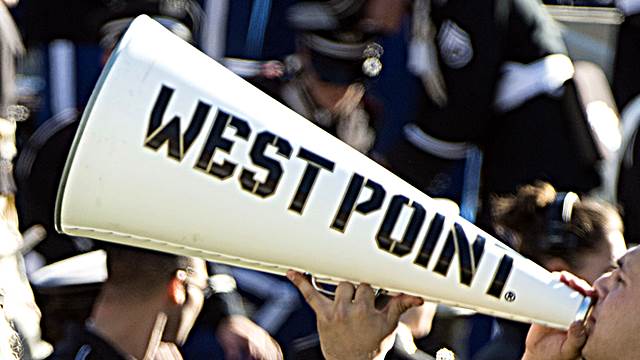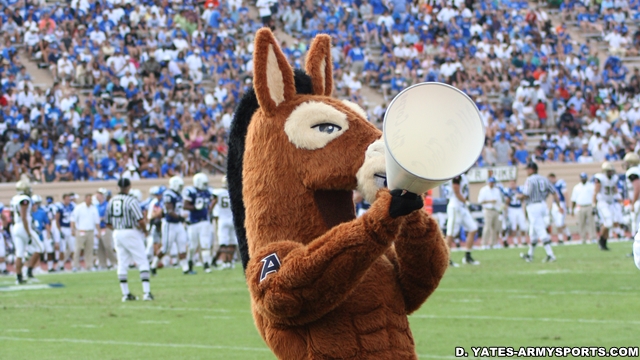
Let’s do the Math.
Six new schools will possibly be coming into the American Conference (AAC); Two existing league members may be going out. One team is on the sideline, waiting to see how the dust settles or totally content with the way things are.
Such is the state of college football these days.
The fact that six schools are being considered for entry into the American Athletic Conference (Rice, Texas-San Antonio, Florida Atlantic, Alabama-Birmingham, North Texas and Charlotte) and that two AAC schools are eager to depart (Memphis and Southern Methodist) has become the talk of many in college football these days.
The question for Army fans, the college that remains on the sidelines during this latest upheaval, is where do the Black Knights end up when all is said and done.
Here are three pros and cons for joining a conference for football:
PROS FOR JOINING A CONFERENCE —
- Scheduling – With teams switching conferences and building new allegiances, there is a growing possibility that Army will not be able to create a schedule that will attract fans—in person at Michie Stadium and on television, which could mean less money for West Point down the road.
By joining a conference, particularly the AAC, Army would be able to participate in one of the two premier Group of Five conferences, guaranteeing better competition and more quality TV time on such channels as ESPN and the CBS Sports network.
- More Money and better bowl tie-ins – While Army has a six-year guarantee for a bowl (if they have a minimum of six wins each year), staying independent could make it more difficult for the Black Knights to continue that deal later on. Some bowls are teetering on financial extinction and, if that happens, as well as an expanded championship playoff series that might include 12 teams, Army could be left behind.
- A Competitive League – If Memphis and SMU leave, and these other schools join, Army would be in a league where they could do some damage year in and year out. Though Navy is not very good this year, the Middies have performed quite well in the AAC over the years and they should get even better as some of their top competitors move elsewhere. Plus, with the new lineup, it will allow Army to play in some key recruiting areas, such as Texas and Florida, on an annual basis.
PROS FOR STAYING INDEPENDENT
- Scheduling — An independent gets to decide its own course, i.e.—schedule. And, for a school like West Point that can mean more home games and more victories that could lead to more interest among fans and even potential athletes who are considering the academy.
- Sharing Money – An independent gets to keep all the money it earns from TV rights and bowl games. In a conference, that has to be shared amongst the other members.
- The College Football Upheaval – No one knows for sure what college football is going to look like in five or 10 years. Staying on the sidelines, give Army a bit more flexibility if more changes are coming. But that could be a big IF if nothing happens.




Be the first to comment